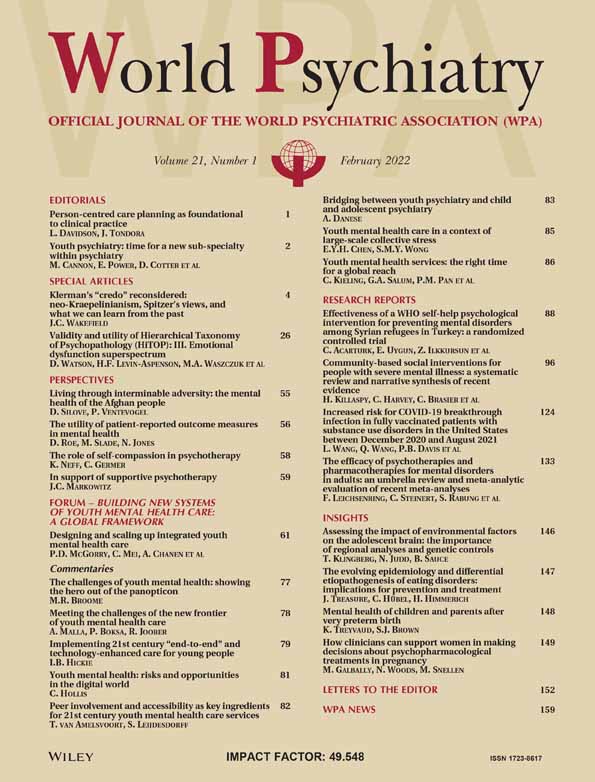是时候停止在社会心理干预试验中使用对照组了吗?
IF 65.8
1区 医学
Q1 Medicine
引用次数: 0
摘要
本文章由计算机程序翻译,如有差异,请以英文原文为准。
Has the time come to stop using control groups in trials of psychosocial interventions?
求助全文
通过发布文献求助,成功后即可免费获取论文全文。
去求助
来源期刊

World Psychiatry
Nursing-Psychiatric Mental Health
CiteScore
64.10
自引率
7.40%
发文量
124
期刊介绍:
World Psychiatry is the official journal of the World Psychiatric Association. It aims to disseminate information on significant clinical, service, and research developments in the mental health field.
World Psychiatry is published three times per year and is sent free of charge to psychiatrists.The recipient psychiatrists' names and addresses are provided by WPA member societies and sections.The language used in the journal is designed to be understandable by the majority of mental health professionals worldwide.
 求助内容:
求助内容: 应助结果提醒方式:
应助结果提醒方式:


